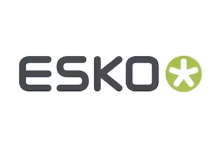Swiss based Rondo AG, part of the international Korber Group in Hamburg, is conducting the first beta test in pharmaceutical packaging in the world with the Heidelberg Primefire 106.
The digital printing system has been installed at Rondo since April 2018, where it is the final piece in the packaging specialist’s Supply on Demand solution. ‘The trends in the pharmaceutical industry are heading towards ever declining runs and shorter delivery times in response to personalised medicine, increasing language and country versions and much shorter delivery times for medicines,’ confirmed Joachim Hoeltz, CEO of Rondo AG. ‘Our production consists entirely of secondary packaging. Through process automation and close IT integration we offer our customers a just-in-time service and by doing so help them to optimise their own supply chain.’
Rondo has been offering its Supply on Demand Service since the Interpack trade fair last year. This means that every week for almost a year, it has been supplying a key pharmaceutical customer with a large number of folding carton orders with very short delivery times. Rondo automated its own workflow and optimised the ERP integration with its customer. The goal of providing small batch sizes in consistently high quality with delivery times of less than a week has already been achieved through conventional offset printing, optimised job preparation and post-press processes. A Speedmaster XL 105 ten-colour perfecting press with coating unit is currently used for printing.
Rondo AG’s Supply on Demand Service helps its customers within the pharmaceutical industry to reduce their total cost of ownership. The precision delivery of the required quantities reduces storage costs or eliminates them completely in the case of direct delivery to the packaging machine. In addition, costs for destroying obsolete packaging are avoided. The close IT integration additionally saves significant costs in administration. In the quality process, Rondo can handle the customer’s incoming goods inspection in compliance with strict Good Manufacturing Practice (GMP) regulations, so that this step can be reduced to a minimum at the pharmaceutical companies. All in all, this can save up to 50 percent of the total supply chain costs. The much shorter packaging delivery times also enable the pharmaceutical customer to reduce their own delivery times for their medicines, often significantly, which in turn leads to considerable benefits on the sales side.
As well as the possibility of producing pharmaceutical packaging from batch sizes of one at the lowest possible cost, the Primefire 106 also makes an impression through its ability to add variable data such as serial numbers while the packaging is being printed.





















